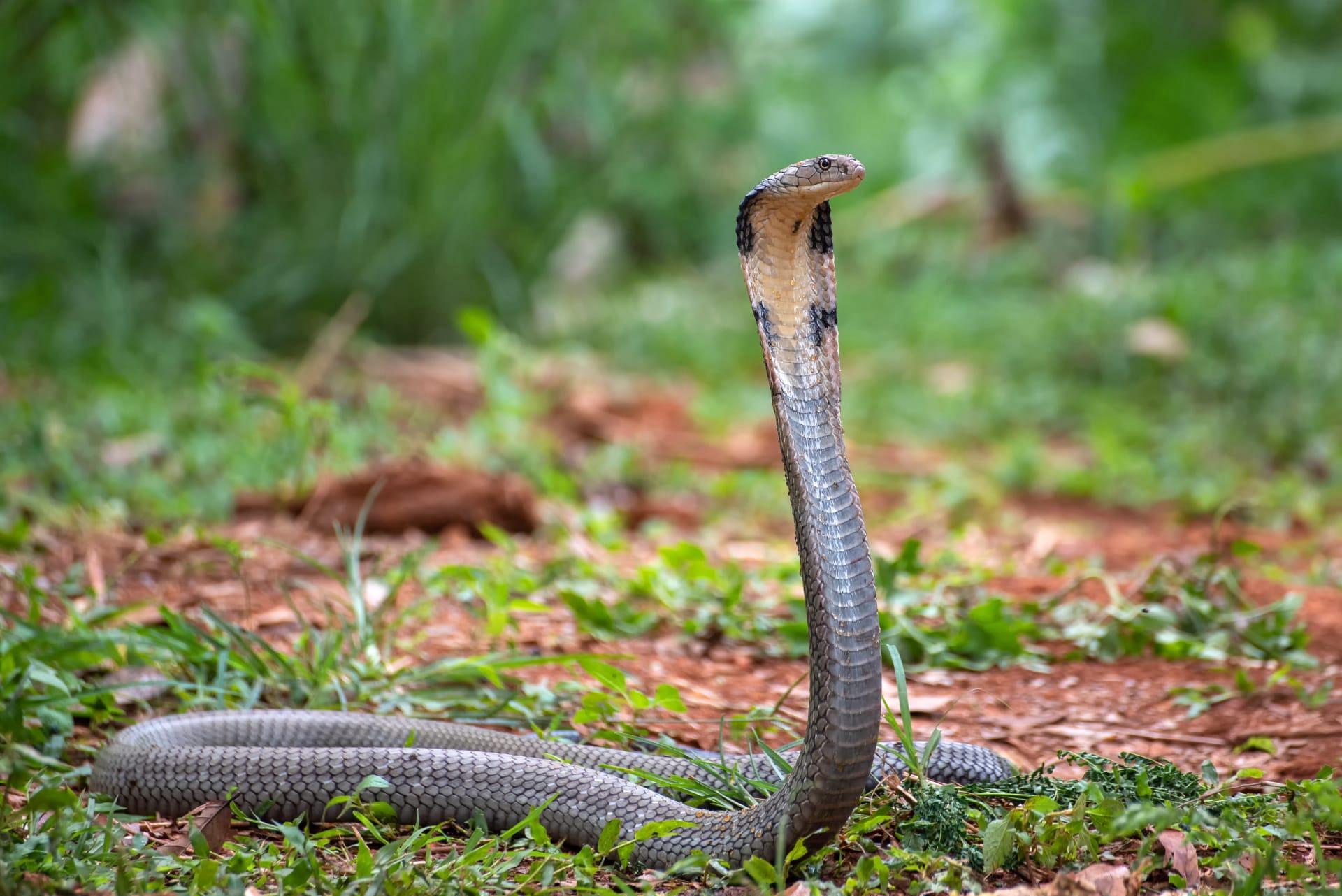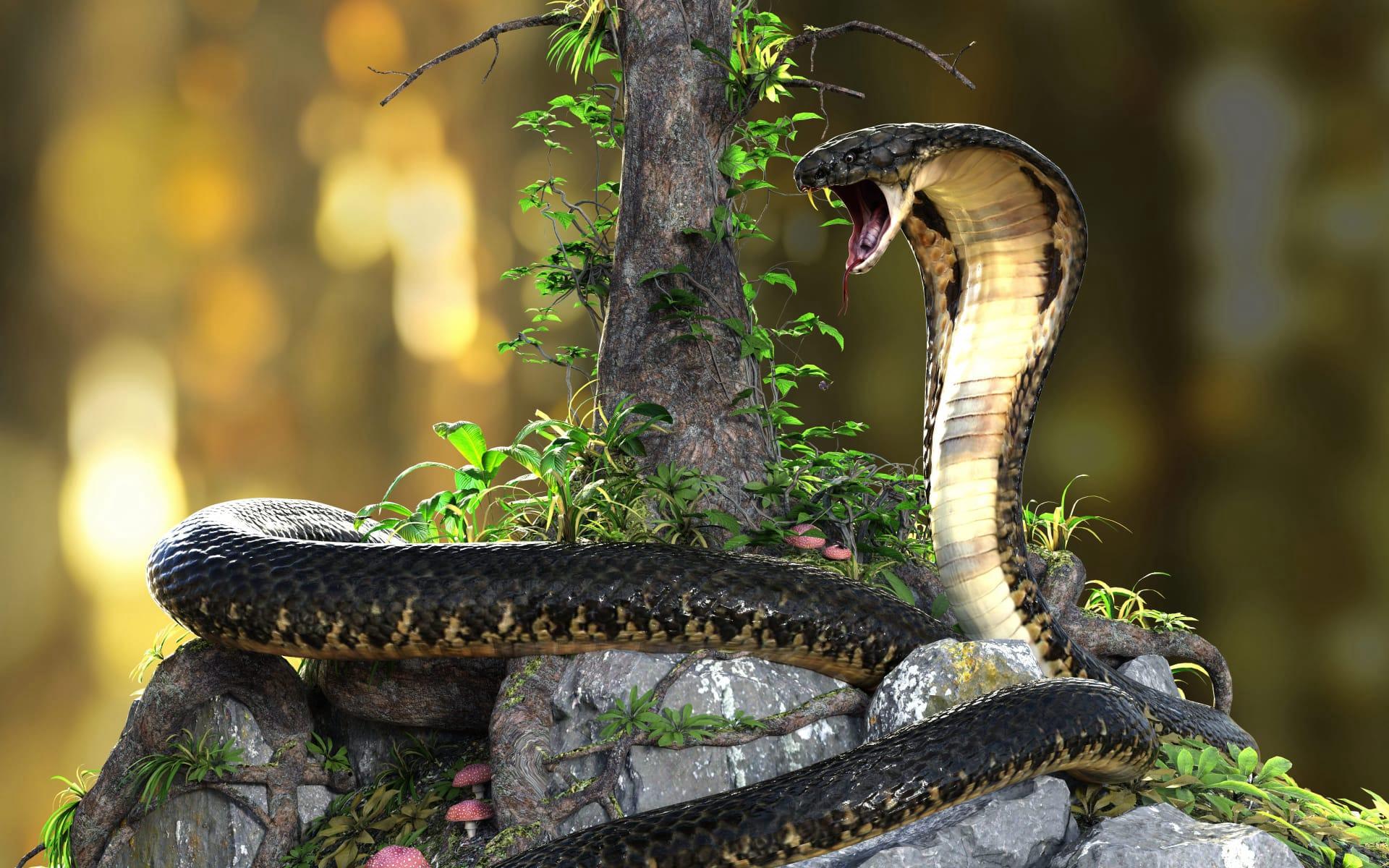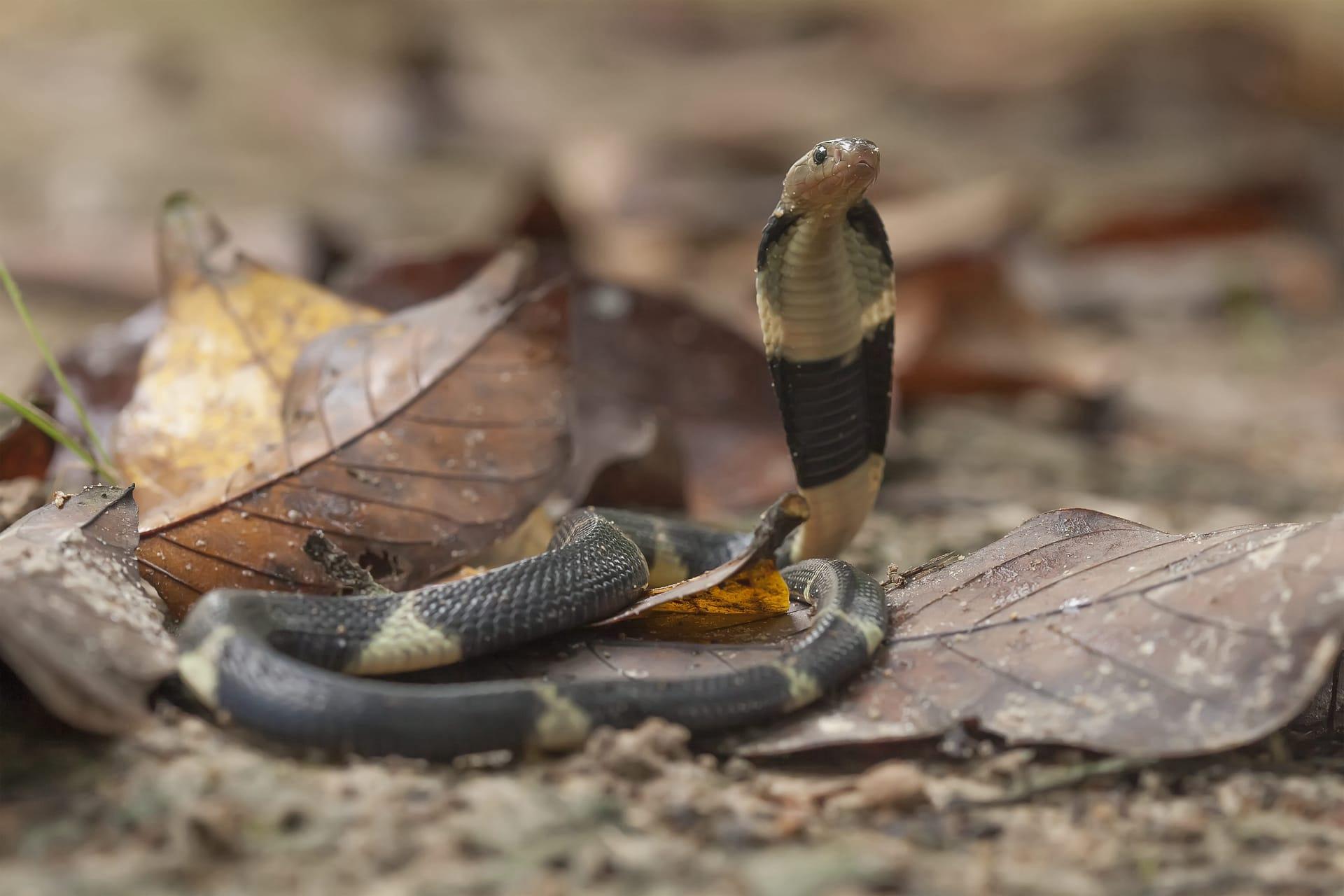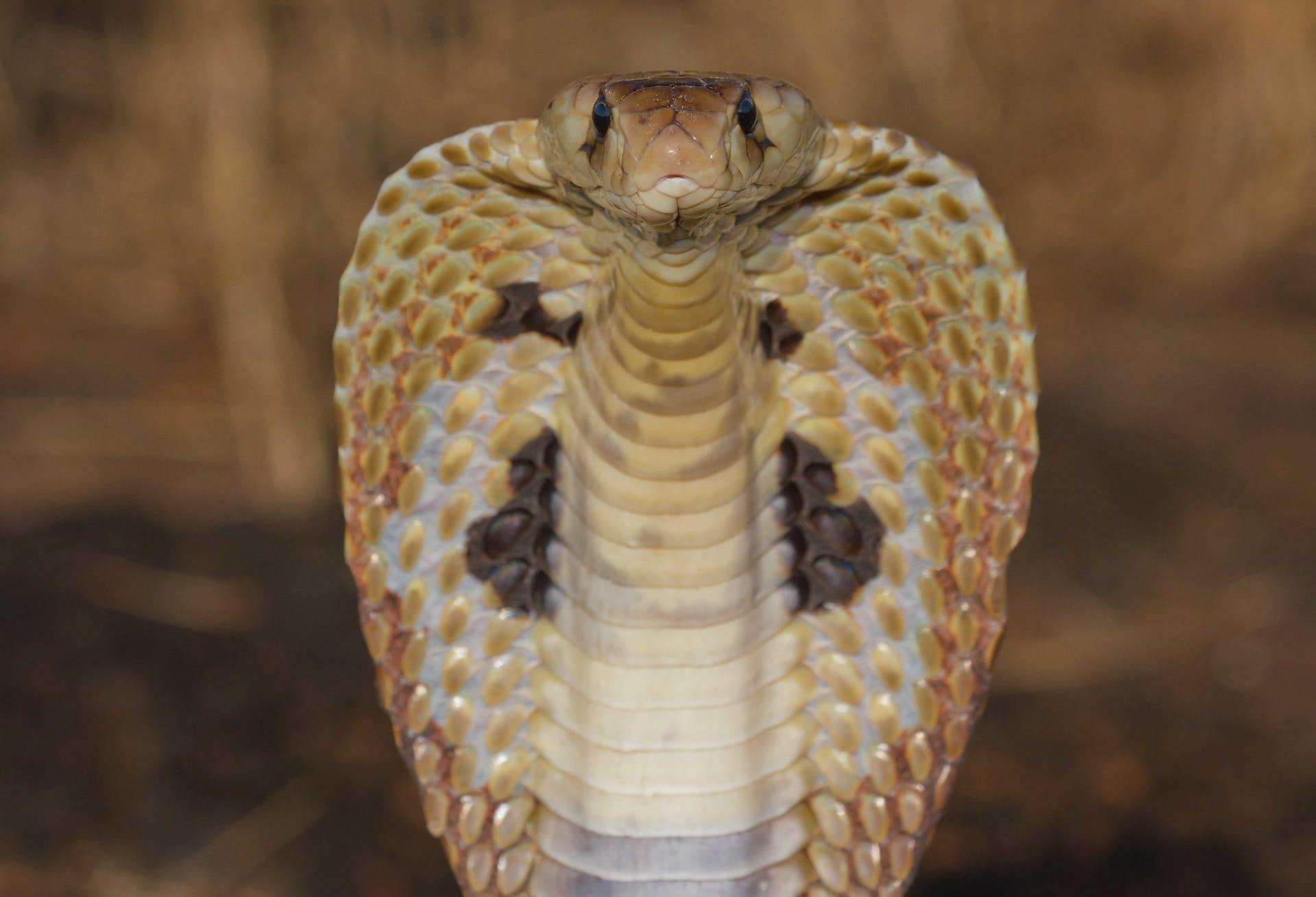King Cobra Trivia
- Home /
- Trivia Question /
- Animal /
- King Cobra Trivia
1
Question: How long can a King Cobra grow, and what is its average size?
Answer: King Cobras are known for their impressive length, with the longest recorded specimen reaching about 19 feet (5.8 meters), although the average size is usually around 10 to 13 feet (3 to 4 meters). This makes them the world's longest venomous snake. Their size is not just for show; it plays a crucial role in their hunting and territorial behavior.
Question: What distinguishes the diet of a King Cobra from other snakes?
Answer: Unlike most snakes, the King Cobra has a unique diet primarily consisting of other snakes, both venomous and non-venomous. They are known to consume pythons, kraits, and even smaller cobras. This specialized diet has influenced their hunting strategies, making them adept at tracking and overpowering other serpents. Occasionally, they may also feed on small mammals and lizards.

2
Question: Is it true that King Cobras can stand and look a person in the eye?
Answer: This is a common misconception. King Cobras can raise up to one-third of their body off the ground and spread their iconic hood when threatened, but they cannot "stand" to human eye level. The highest they can typically rear up is about 4 to 5 feet (1.2 to 1.5 meters), which can be intimidating but not nearly at eye level for an average adult human.
Question: Do King Cobras chase humans aggressively?
Answer: Another myth about King Cobras is their supposed aggression towards humans. In reality, they are shy and prefer to avoid humans. They will only attack if cornered or provoked. Their reputation as aggressive snakes is likely due to their formidable size and potent venom, but human encounters leading to attacks are relatively rare.

3
Question: How does the King Cobra's venom work, and how dangerous is it?
Answer: King Cobra venom is a complex cocktail of neurotoxins that affect the nervous system. It can cause severe pain, blurred vision, dizziness, drowsiness, and paralysis. In extreme cases, it can lead to respiratory failure and death. However, King Cobras are typically reluctant to bite and will often avoid confrontation. Their venom is potent, but fatalities are rare due to their preference for avoidance over aggression.
Question: Can King Cobras really "hear" the music from a snake charmer's flute?
Answer: Snakes, including King Cobras, cannot hear music as they are deaf to airborne sounds. The notion that they follow the music of a snake charmer is a myth. In reality, they are responding to the movement of the flute and the charmer. As they perceive the charmer as a potential threat, they raise up and sway in a defensive posture, appearing to "dance" to the music.

4
Question: What role does the King Cobra play in its ecosystem?
Answer: King Cobras play a vital role in maintaining the ecological balance. As apex predators, they help control the population of their prey, primarily other snakes. This population control is crucial in maintaining a balanced ecosystem and preventing overpopulation of certain snake species, which can have cascading effects on other wildlife and habitats.
Question: How do King Cobras reproduce and care for their young?
Answer: King Cobras are unique among snakes for their parental care. They are the only snakes known to build nests for their eggs. The female lays 20 to 40 eggs and then guards them until they hatch, which is about 60 to 90 days. During this time, the female will fiercely protect the nest from predators, showcasing a level of parental care rare among reptiles.

5
Question: How does the King Cobra's hunting strategy differ from other snakes?
Answer: The King Cobra's hunting strategy is marked by its intelligence and precision. They are able to track their prey, often other snakes, using chemical trails. Once they locate their prey, they use their size and strength to quickly subdue it. They are also known to be able to "remember" locations where prey is abundant, exhibiting a level of cognitive ability not commonly seen in reptiles.
Question: What is the lifespan of a King Cobra in the wild?
Answer: In the wild, King Cobras have a lifespan of around 20 years. This is relatively long for a snake and is attributed to their apex predator status, which means they have few natural enemies. In captivity, with the absence of threats and regular veterinary care, they can live even longer, sometimes over 20 years. Their longevity in the wild is dependent on various factors, including habitat conditions and availability of prey.